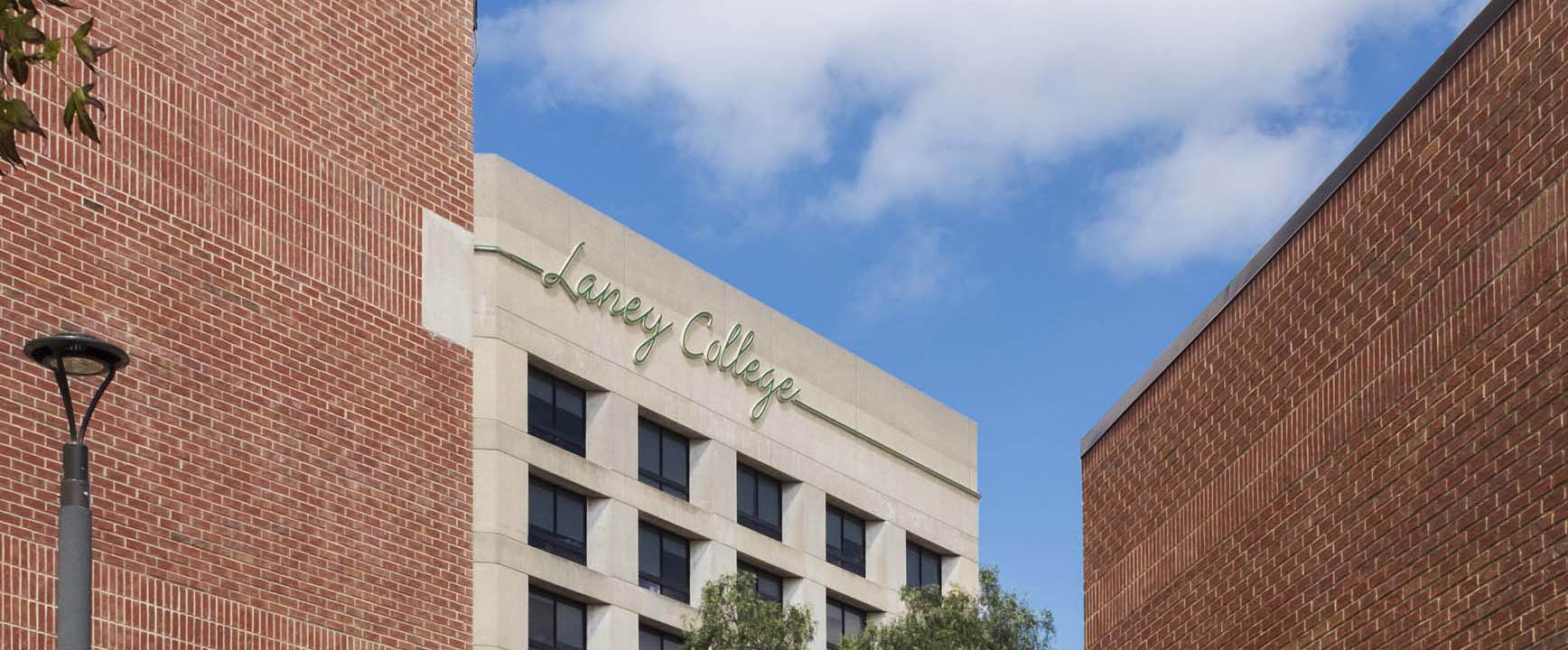|
Goal |
Activities in each program that serve the goal listed |
Goal Area |
||
| SSSP | Student Equity | BSI | ||
| Increase access to the college for disproportionately impacted populations | Provide Outreach Specialist to support recruitment activities and deepen partnerships with high school and community partners.
Implement enhanced Student Ambassador program |
Develop outreach strategy to include Veterans, Foster Youth, and Spanish-speaking populations through targeted materials and community partnerships | Expand offerings of new ESOL noncredit “Bridge to Credit” sequence to provide onramp into programs. Offer courses onsite and key off-site locations. |
• Access • Retention |
| Increase basic skills completion, including the number of students successfully transitioning to college-level mathematics and English courses. | Implement mandatory online orientation, early alert and multiple measures assessment to increase number of students placed directly into college-level courses. | Expand tutoring support, embedded tutors and tutor training. Expand Math Camp to specifically engage DI populations. | Expand offerings of accelerated curriculum in English, Math & ESOL. Create Communities of Practice for faculty. Increase tutoring support and provide embedded tutoring. |
• ESL/ Basic Skills Completion |
| Close achievement | Raise | Support Umoja- | Improve assessment | • Retention |
| gaps for disproportion-ately impacted groups. | awareness of newly hired counselors who provide targeted services to DI groups. Host the HBCU Caravan tour. | UBAKA program for African American student success; cohort of students in the classes; host Black Expo and HBCU fair | for placement. Provide noncredit support courses. | • ESL/ Basic Skills Completion |
| Improve success rates in degree attainment, certificate attainment, and transfer. | Follow up services: 45 unit notifications of current students for degree/certific ate completion. | Support Umoja- UBAKA program. Expand tutoring support and training.
Establish Enrollment Management Committee to support District- wide schedule development. |
Develop accelerated pathways and improved assessment procedures to decrease length of time to complete degrees, certificates, and transfer. |
• Retention • Degree & Certificate Completion |
| Increase student course completion and retention rates | 15 unit notifications of current students for comprehen- sive ed plan. | Expand tutoring services.
Emergency funding and services for students who are vulnerable. Professional development for faculty |
Implement embedded counseling. Develop noncredit support courses |
• Access • Retention |
| Provide professional development for faculty and staff to support student success and equity | Institute faculty inquiry groups to examine their own student equity data.
Expand and institutionalize ACE FELI training. |
Provide additional training on noncredit development. | • Access
• Retention • Transfer • ESL/ Basic Skills Completion • Degree & Certificate Completion |
a. How will your college accomplish integration of matriculation, instruction, and student support to accomplish you student success goals? Include in your answer how your college will ensure coordination across student equity-related categorical programs or campus-based programs.
Laney College is in an ideal point of the integration planning, as the College is currently participating in strategic planning, where College constituents are undergoing a revision of its Mission, Vision, and establishment of College Goals for 2018-2023. This work will enable the intentional alignment of student success goals across all student equity-related categorical programs and campus-based programs, and will also be in line with the Guided Pathways planning that is currently in progress. In spring 2018, student-equity related categorical programs and campus-based programs, including academic departments, will be tasked with submitting their plans for how their work will intentionally link back to the College’s newly formed goals. Accountability measures will be in place through the Institutional Effectiveness Committee.
Laney College also has the benefit of a robust participatory governance process, which includes planning committees that ensures that planning across program goals is taking place. As an example, an Integrated Planning Working Group has been formed to ensure that planning across student-equity related categorical programs is taking place, and intentionally aligns resources to ensure maximum support of student success.
b. If your college has noncredit offerings, describe how you are including these offerings in moving students through to their goals, including post-secondary transitions and employment.
A recently adopted position, Associate Dean of Educational Success, has been created at each college in the District to provide enhanced support using an equity lens for our credit and noncredit programs. Through Adult Ed Block grant funding, we have also added a Transitions Liaison position to increase our supportive services through providing a “warm hand off” for students to on-campus supports at student entry points (ex: Welcome Center, Counseling Department) and partnerships with community-based organizations to ensure that students are continually engaged in successful strategies toward completion. Laney continues to be in a position of supporting student post-secondary transitions and employment through job placement services, internship experiences, and transition planning with industry partners.
Laney is at the early stages of developing noncredit courses and programs. Laney’s first noncredit program, ESOL Bridge to Credit, was backwards-designed to provide lower-level speakers of other languages an on-ramp into credit ESOL programs. Other noncredit courses in development at Laney include:
- Noncredit Basic Skills Math: mini-modules for arithmetic and pre-algebra to help support students on accelerated Math STEM and SLAM pathways, as well as support math skill-specific competency development for CTE programs.
- College Composition Toolkit: noncredit English workshop courses to support students in credit courses with developing reading and writing skills
- Vocational ESOL program: English for Customer Service, Technology training, and for English Special Purposes which be tailored to align with the specific vocabulary required for Laney’s CTE programs.
- Public Works Pathway: Noncredit test preparation and job search skills for CTE students seeking civil service jobs
- Math Camp: two-week skills course to help students prepare for assessment tests, reduce math anxiety, and improve performance in Math
c. Describe your professional development plans to achieve your student success goals.
We plan to build and expand on the following activities, which have proven successful in providing the college community shared opportunities to learn strategies in achieving student success and closing achievement gaps:
- The Academy for College Excellence (ACE) Five Day Experiential Institute (FELI) has been rigorously evaluated qualitatively and quantitatively. Students who complete the training exhibit significant gains in: academic self-efficacy, personal responsibility, college identity, mindfulness, leadership and teamwork. We plan to build a train-the- trainer model to institutionalize FELI practices and incorporate the FELI into a First-Year Experience program for students. One group of faculty was trained Summer 2017, and we plan to offer additional trainings in 2018-19.
- Ongoing, consistent, and regular professional development about equity, student success, and supporting students with diverse learning styles. The College has hosted guest speakers and held several trainings on equity. We intend to build a more consistent regular programmatic approach to student success and equity training. The College has also partnered with InsideTrack to conduct a needs assessment of support services, with the goal of fostering the professional development of classified staff, to ensure that all professional employees of the College have the resources they need to help direct students on their path to success.
- Conducting research and data review specific to program and course-level equity outcomes to inform targeted interventions for professional development, which may include faculty inquiry groups to examine instructors’ own equity data.
d. How and how often will you evaluate progress toward meeting your student success goals for both credit and noncredit students? You could analyze milestones, momentum points, leading indicators, or any other metric you find appropriate for your college.
Evaluation of progress indicators will take place at least two times per year, with the first assessment being used as a baseline evaluation. In addition, there are some indicators that will be reviewed more frequently. For example, in the case of course completion and retention, the full implementation of Early Alert will provide the opportunity to track implementation strategies to support students’ continued engagement in reaching their goals. Analysis of the District/College Scorecard, and milestones, and momentum points will also take place.
e. For multi-college districts, how will you coordinate your efforts for SSSP, Student Equity, and BSI, with other colleges in your district to achieve your student success goals?
Coordination of College efforts to integrate SSSP, Student Equity, and BSI is an important endeavor. In Peralta, the District Academic Affairs and Student Services Committee (DAASSC) has recommended that colleges have one college committee to review the integration of SSSP/Equity/BSI plans and goals. Further, DAASSC has recommended that the college integrated plan committees provide an update to DAASSC each semester about the progress of obtaining goals and integrating SSSP/Equity/BSI services. Finally, DAASSC will facilitate having a district-wide annual Integrated Summit to discuss possibilities for coordination across district colleges to support the achievement of integration plans and goals.
f. Using the document “BSI SE SSSP Integrated Budget Plan 2017-2018” and your 2017-2018 annual allocation amounts, provide a budget plan specifying how you will utilize your BSI, SE, and SSSP funds to help achieve your student success goals.
The attached BSI SE SSSP Integrated Budget Plan 2017-18 along with budget allocation information provides a summary of how these funds will be utilized.
g. Each college must create an executive summary that includes, at a minimum, the Student Equity goals for each required student group, the activities the college will undertake to achieve these goals, and the resources budgeted for these activities. The executive summary for this plan must also include an accounting of how Student Equity funding for 2014-15, 2015-16, and 2016-17 was expended and an assessment of the progress made in achieving the identified goals from prior year plans. The summary must also include the name of the college or district official to contact for further information. The executive summary must be posted to the college website. Provide a link to your college’s executive summary below:
https://laney.edu/integrated-plan/
h. What support from the Chancellor’s Office (e.g., webinars, workshops, site visits, etc.) and on what topics (e.g., budget, goal setting, expenditures, data visualization, etc.) would help you to accomplish your goals for student success and the closing of achievement gaps?
The Chancellor’s Office can continue to support the region with providing area-wide workshops and professional development opportunities, particularly related to Guided Pathways and the use of data analytics to support program improvements.
i. Identify one individual to serve as the point of contact for your college (with an alternate) for the Integrated Plan and provide the following information for that person:
Point of Contact: Vicki Ferguson
Vice President of Student Services vferguson@peralta.edu
(510) 464-3294
Alternate Point of Contact: Kevin Wade
Dean of Student Services kwade@peralta.edu (510) 464-3393



